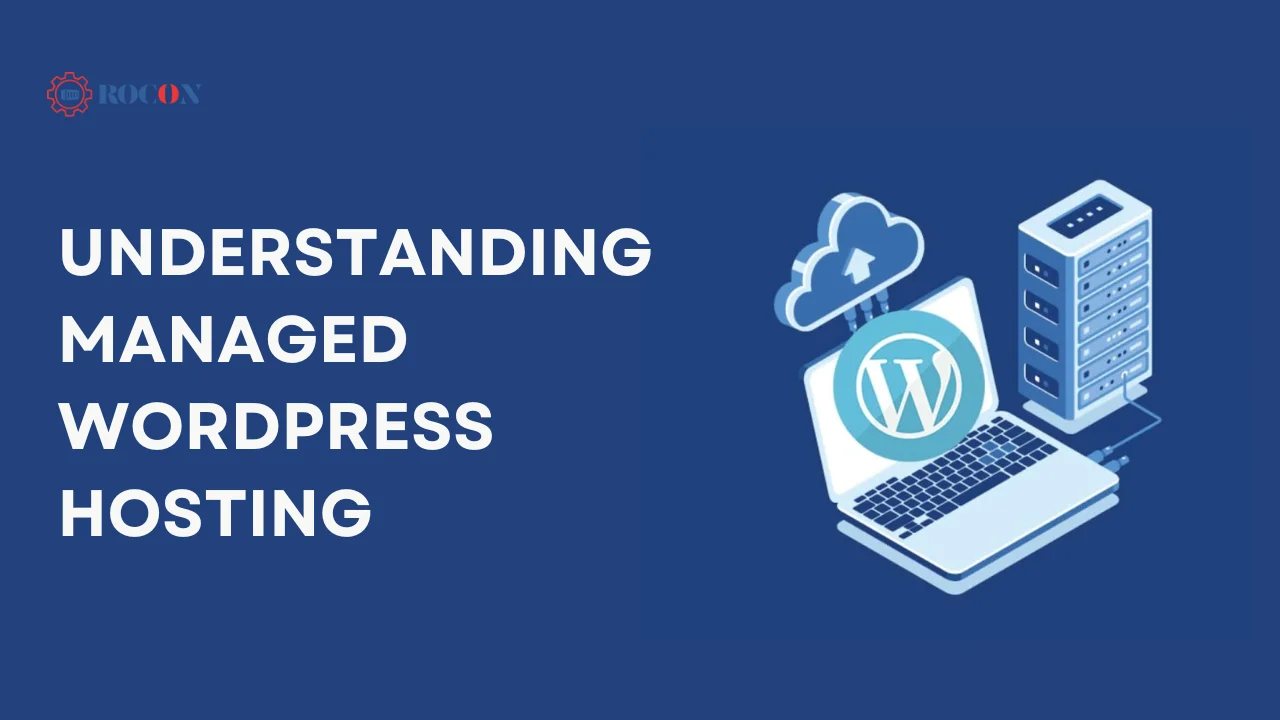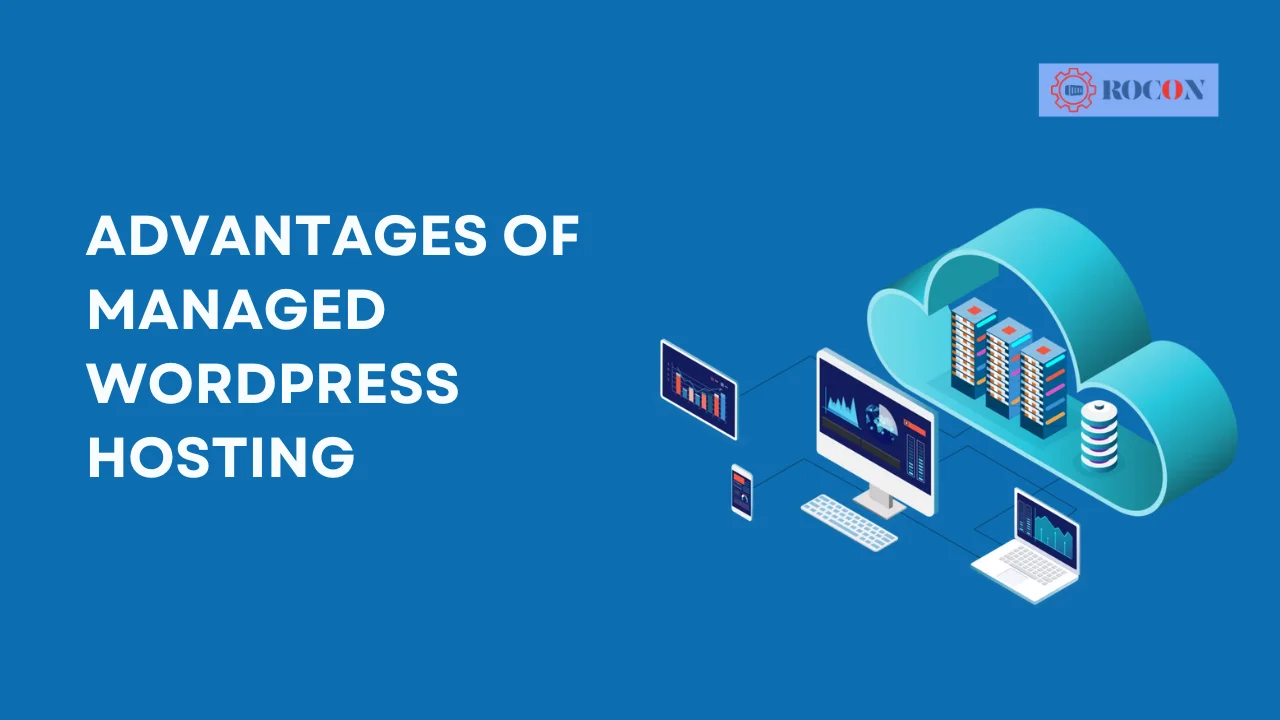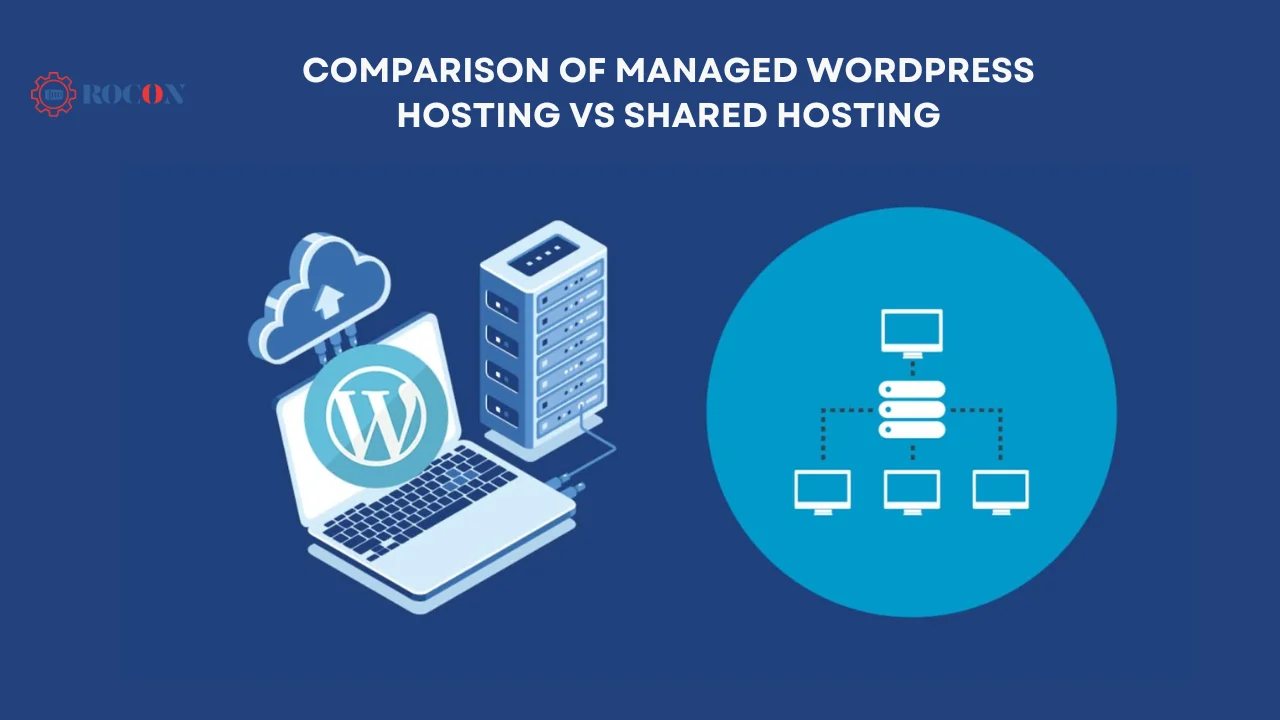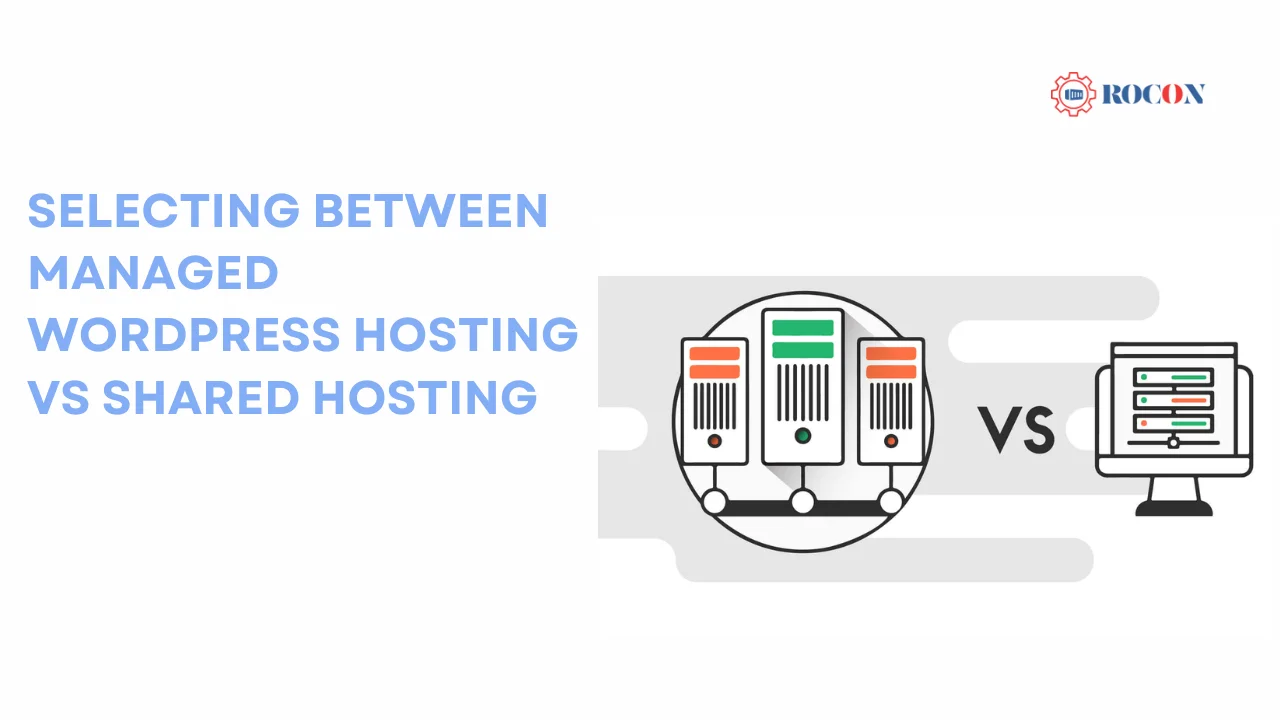Introduction: Managed WordPress Hosting vs Shared Hosting
You’ll make one of the biggest decisions when you launch a website what hosting to use. Your website’s performance, security, scalability and success will depend on that. Managed WordPress hosting vs shared hosting are the two most popular options.
Although the two serve different purposes and have different benefits, it’s important to understand the differences to make an informed decision. This guide will go through managed WordPress hosting and shared hosting, features, benefits, limitations and use cases.
Managed WordPress hosting offers optimized performance, automatic updates, and expert support, while shared hosting is more budget-friendly but shares resources with other sites. Managed solutions like Rocon provide better speed, security, and scalability for WordPress sites. Shared hosting is ideal for beginners, whereas managed hosting suits growing or high-traffic websites.
Understanding Managed WordPress Hosting

What is Managed WordPress Hosting?
Managed WordPress hosting is a hosting service for WordPress sites. Unlike general hosting, managed WordPress hosting is an environment tailored to WordPress. This means a set of tools and features to make managing a WordPress site easier and more secure and faster.
Key Features of Managed WordPress Hosting
- Enhanced Performance: Managed WordPress hosting companies optimize their servers for WordPress so your site loads faster and quicker. That means server side caching, Content Delivery Networks (CDN) and other performance goodies.
- Enhanced Security: Managed hosting companies prioritise security. They offer lots of security features like automatic updates to WordPress core, plugins and themes, malware detection and daily backups.
- Automatic Updates: Managed hosting means your WordPress site is running the latest versions of WordPress, themes and plugins so you have less vulnerabilities and more compatibility.
- Expert Assistance: Dedicated WordPress support teams are provided by managed WordPress hosting companies. That means you can talk to experts who understand WordPress and can help you fix problems fast.
- Staging Environments: A staging environment lets you test changes and updates before they go live on your site. For developers and site owners who don’t want to break the user experience.
- Daily Backups: In the event of problems or data loss, backups mean your data is safe and can be restored. Many managed hosts offer one click restore options.
- Scalable Infrastructure: Managed hosting solutions are engineered to expand in tandem with your organization. Managed hosting is capable of meeting your requirements, regardless of whether you encounter an abrupt increase in traffic or require additional resources as your website expands.
Advantages of Managed WordPress Hosting

- Performance and operation: Managed WordPress hosting is designed to prioritize performance. More traffic and faster load times with WordPress optimized servers and no performance compromise.
- Security: Your site is protected from malware, hacking attempts and data breaches with extra security features. You can sleep at night knowing your site is secure with regular updates and expert eyes.
- Ease of Use: We take care of the tech so you can focus on your business and content. Perfect for those who are not tech savvy.
- Expert Support: The prompt and efficient resolution of any issues is guaranteed by the availability of knowledgeable support personnel. Support is available, whether you require assistance with a plugin or encounter a technical issue. Simply contact us via phone or click.
- Scalability: Managed hosting lets you grow with your business and add resources and manage more traffic as needed.
Who is Managed WordPress Hosting For?
Managed WordPress hosting is for businesses, e-commerce sites or agencies that want a stress free hosting solution.
Restrictions of Managed WordPress Hosting
- Price: Managed WordPress hosting is more expensive than shared hosting because of the extras and support. Not good for small business or on a tight budget.
- Less Control: Some managed hosting providers limit the amount of server environment customisation which may not be suitable for developers who need full control.
- WordPress only: Managed WordPress hosting is for WordPress sites only; so not suitable for other types of applications or sites.
Managed WordPress Hosting Platforms: Rocon, WP Engine, Kinsta
Ultimate solution for anyone looking to elevate their website’s performance.
Don’t settle for less. Make the switch to Rocon’s managed WordPress hosting today and experience the difference.
Explore More
Understanding Shared Hosting
What is shared hosting?
Shared hosting is where multiple websites share the same server resources like CPU, RAM and storage. It’s a great option for beginners and small websites with low traffic as it’s affordable and easy.
Key Features of Shared Hosting
- Cost-effective: Shared hosting is the most affordable hosting option out there so it’s perfect for individuals and small business who wants to have an online presence without breaking the bank.
- User-friendly: Many shared hosting providers have easy to use control panels and one click install options which makes it easy for beginners to set up and manage websites.
- Restricted Resources: Limited resources as many sites are on the same server. This can affect your site during high traffic periods.
- Basic Security Features: Basic security features like SSL and some malware protection are included in shared hosting. But not as comprehensive as managed hosting.
- Community Support: Community forums and knowledge base are included in shared hosting so you can ask and find answers to frequently asked questions.
Advantages of Shared Hosting
- Price: Shared hosting is the cheapest option so perfect for small business, entrepreneurs and those on a tight budget.
- Ease of use: Shared hosting is easy to set up and manage even for those with no tech skills thanks to user friendly interfaces and one click installers.
- Flexibility: Many shared hosting plans allow you to host multiple domains on one account so you can manage multiple sites from one place.
- Basic Features: Shared hosting is good for basic sites because it has the basic features like email accounts, databases and support for popular apps.
Who is Shared Hosting For?
Shared hosting is good for small websites with low traffic, like personal blogs or portfolios where performance and security isn’t a concern.
Restrictions of Shared Hosting
- Limited Resources: Performance will be affected especially when other sites on the server gets too much traffic since resources are shared among multiple sites.
- Security Risks: Shared hosting environment is more prone to security vulnerabilities since an attack on one site can affect other sites on the same server.
- Limited Control: Users have limited access to server settings and configurations which can be bad for those who want to customize their hosting environment.
- Performance Issues: Shared hosting can’t handle high traffic or complex applications which can result to slow load times and outages.
Comparison of Managed WordPress Hosting vs Shared Hosting

Having gained an understanding of the benefits of managed WordPress hosting and shared hosting, it is time to compare these alternatives based on a number of critical factors.
1. Performance
WordPress Hosting Managed:
Managed WordPress hosting is designed to provide exceptional performance and rapid loading times, with a focus on WordPress. In order to optimize the performance of their websites, providers implement server-side caching, CDN integration, and other technologies. This optimization renders managed hosting the optimal choice for websites that necessitate high performance, such as e-commerce stores or media-rich sites.
Shared Hosting:
The shared nature of server resources can result in performance issues with shared hosting. The efficacy of other websites on the same server may be impacted if a single website on the server experiences high traffic or consumes an excessive amount of resources. Although shared hosting is adequate for small websites with low traffic, it may not be able to satisfy the performance requirements of larger or more complex sites.
2. Security
WordPress Hosting Managed:
Managed WordPress hosting providers prioritize security. They provide sophisticated security features, including automatic updates, firewalls, and regular malware scanning, to safeguard against vulnerabilities. Furthermore, managed hosting frequently comprises SSL certificates, DDoS protection, and daily backups, offering a comprehensive security solution for WordPress sites.
Shared Hosting:
Although shared hosting includes fundamental security features, it may not provide the same level of protection as managed hosting. A security vulnerability on one website could potentially affect others, as multiple websites share the same server. In order to safeguard their websites, users may need to implement supplementary security measures, such as the installation of security extensions or the utilization of third-party services.
3. Cost
WordPress Hosting Managed:
Managed WordPress hosting is typically more expensive than shared hosting because of its specialized features and dedicated support options. The monthly cost can fluctuate widely, ranging from $20 to $100 or more, contingent upon the provider and the selected plan. The increased price is indicative of the value of improved security, performance, and support.
Shared Hosting:
Shared hosting is the most cost-effective hosting option, with plans starting at just $3 to $10 per month. This renders it an appealing option for small enterprises and individuals who are operating on a limited budget. Nevertheless, the reduced cost is accompanied by compromises in security, efficacy, and support.
4. Assistance
WordPress Hosting Managed:
The quality of support that managed WordPress hosting offers is one of its most notable features. Hosting providers provide support teams that are proficient in WordPress, guaranteeing that problems are resolved promptly and effectively. This assistance can be invaluable for businesses that depend on their website for revenue or have limited technical proficiency.
Shared Hosting:
Basic support is frequently provided by shared hosting, frequently through community forums or knowledge bases. Although certain providers provide customer support through chat or phone, it may not be as responsive or specialized as the support offered by managed hosting vendors. This can be a constraint for users who require immediate assistance or have intricate technical inquiries.
5. Scalability
WordPress Hosting Managed:
Managed WordPress hosting is engineered to expand in tandem with your organization. As your website expands, providers provide scalable infrastructure that can accommodate increased traffic and resource demands. This makes managed hosting an appropriate option for businesses that anticipate seasonal traffic surges or growth.
Shared Hosting:
Shared hosting provides restricted scalability due to the fact that resources are shared among numerous domains. Although certain providers provide the option to enhance plans, shared hosting may not be able to accommodate substantial traffic increases or resource requirements.
Boost Your Site with Managed WordPress Hosting
Experience faster load times and enhanced security. Switch from shared to managed WordPress hosting with Rocon for seamless performance!
Explore More
Forecast-Driven Scaling for Proactive Uptime
Traditional auto-scaling reacts after your WordPress site begins experiencing traffic spikes—often leading to slow page loads or brief downtime before extra resources kick in. Rocon takes a smarter, more reliable approach with Forecast-Driven Scaling.
Instead of reacting to real-time stress, Rocon analyzes usage patterns, scheduled promotions, and historical traffic behavior to predict demand in advance. This ensures that your site is always prepared—whether you’re launching a flash sale in the U.S. or running a seasonal campaign in India.
By scaling resources before the surge hits, your store or business site stays lightning-fast, secure, and stable—no matter where your audience is or when they show up.
Key Benefits of Forecast-Driven Scaling:
- Pre-loads extra resources ahead of predictable spikes (like product launches, festive sales, email campaigns)
- Applies globally across different markets (U.S. Black Friday, Indian Diwali, etc.)
- Zero delay in response time—no lag while waiting for scaling to activate
- Uses machine learning insights from past traffic to optimize future performance
- Ensures 99.99% uptime, even during multi-region concurrent load events
How to Decide: Managed or Shared Hosting?

The following factors should be taken into account when selecting between managed WordPress hosting vs shared hosting:
- Budget: Determine the amount of money you are willing to allocate for hosting. Shared hosting is cost-effective, but it may necessitate additional security measures, whereas managed hosting provides enhanced features at a higher cost.
- Technical Proficiency: Your aptitude for server-related tasks and readiness to supervise them should be assessed. While managed hosting manages technical aspects for you, shared hosting may necessitate more hands-on management.
- Website Requirements: Evaluate the necessities of your website, including traffic volume, security requirements, and desired features. Shared hosting is suitable for tiny, low-traffic sites, while managed hosting is optimal for high-performance sites.
- Growth Plans: Managed hosting provides the ability to scale in order to meet the growing demands of your website or to handle traffic surges. For static websites or those with consistent traffic, shared hosting may be adequate.
- Support Requirements: Assess the extent of your support requirements. Shared hosting may provide more basic support alternatives, whereas managed hosting provides expert support.
Check out the top managed hosting and shared hosting platforms.
Behavior Based Auto Optimization for WordPress Workloads
Traditional hosting platforms optimize performance based on fixed server metrics. But modern traffic isn’t static—it changes based on how users behave. That’s why future-ready hosting must evolve to support real-time, behavior-driven performance tuning.
Rocon leads this approach by observing user interaction patterns, like:
- Surge in checkout activity during flash sales
- Increased form submissions during marketing campaigns
- Long session times on product or content-heavy pages
Based on these insights, Rocon dynamically reallocates CPU, memory, or caching rules—without waiting for server strain. This ensures consistently fast, stable performance that adapts as your site’s users change behavior in real-time.
Benefits of Behavior Based Auto Optimization:
- Prevents slowdowns before they happen
- Aligns hosting performance with actual user flow
- Machine-learns peak engagement times and resource needs
- Auto-tunes database/query performance under dynamic loads
- Works across regions, traffic types, and even device types
Conclusion
The decision between managed WordPress hosting vs shared hosting is contingent upon your technical expertise, budget, and unique requirements. For those who value these, managed WordPress hosting is the way to go, security, support and performance. For small sites and low traffic sites, shared hosting is the budget option.
Get informed and make a decision that matches your goals and your site by knowing the differences between these hosting options and your site. Stay current with web hosting and you’ll survive in this digital age.
Upgrade to Managed WordPress Hosting for Unmatched Performance
Tired of slow loading times with shared hosting? Switch to managed WordPress hosting for faster speeds, better security, and hassle-free management. Take control with Rocon today!
Explore More
Managed WordPress Hosting vs Shared Hosting FAQs
1. What is shared WordPress vs managed WordPress?
Shared WordPress hosting means your site shares server resources with others, making it budget-friendly but with limited control. Managed WordPress hosting, like Rocon’s, takes care of all the technical tasks—updates, security, performance—giving you a hands-off, hassle-free experience. It’s perfect if you want more support and better performance.
2. Shared hosting vs. managed WordPress hosting — which is best for my website?
If you have a small site with low traffic, shared hosting might be enough. For high traffic, better performance and more security, managed WordPress hosting is the way to go as it has specialized support and features.
3. Is shared hosting suitable for high‑traffic WordPress websites?
No, shared hosting can’t handle high traffic sites, it will be slow and may go down. Managed WordPress hosting can handle lots of traffic smoothly.
4. Is managed WordPress hosting more secure than shared hosting?
Yes! Managed WordPress hosting has advanced security features like auto updates, malware scanning, firewalls and regular backups which is way more secure than shared hosting.
5. What is the difference between managed and unmanaged WordPress hosting?
Managed WordPress hosting means the hosting provider handles everything—updates, security, backups, and performance—so you don’t have to worry. Unmanaged hosting, on the other hand, gives you more control, but you’re responsible for all the technical aspects, including updates and troubleshooting. Managed hosting is ideal if you prefer a hands-off approach, while unmanaged is better for tech-savvy users.

Leave a Reply